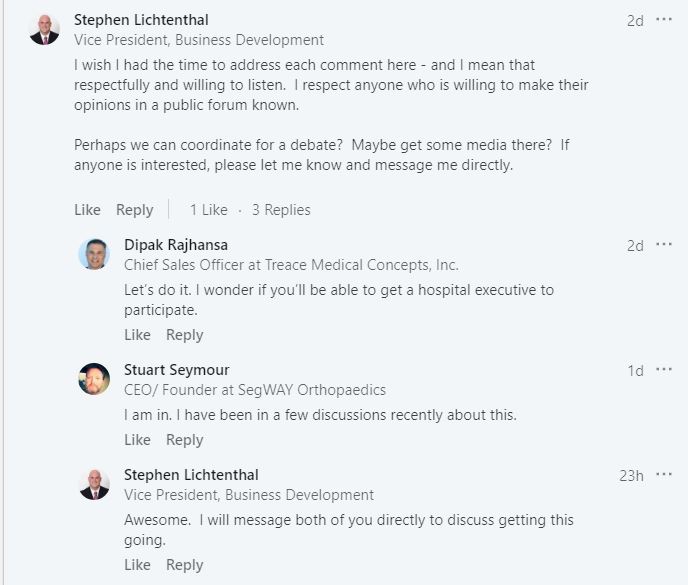It’s a club no one wants to join, but many Americans these days find themselves automatically eligible for the “Bill of the Month” club.
Kaiser Health News and NPR’s Shots blog began collecting readers’ “exorbitant or baffling” health care bills for examination early this year. Editors have waded through roughly 500 submissions, choosing just one each month to decode and dissect.
But the crowdsourced investigation has given voice to countless others on social media — health care consumers and industry players alike. With each installment, hundreds of readers weighed in. The most recent feature, “Sticker Shock Jolts Oklahoma Patient: $15,076 For Four Tiny Screws” (May 14), so far has generated nearly 6,800 shares on Facebook, scores of tweets and lively discussions on both Reddit and LinkedIn.
Readers aren’t merely bellyaching. Discussions quickly veer toward solutions: demanding more transparency and exploring a single-payer health care system.
Among highlights from Twitter:
From @NPRHealth & @KHNews: it's so important to ask healthcare entities for itemized receipts! They ask listeners to share itemized healthcare receipts — which DPC patient wants to step up to share a transparent, fairly priced healthcare invoice? https://t.co/sb911L1byI pic.twitter.com/bILc0X7MbB
— KC DirectPrimaryCare (@KansasCityDPC) May 15, 2018
This is about as good an argument for #MedicareForAll that there is. Sticker Shock Jolts Oklahoma Patient: $15,076 For 4 Tiny Screws https://t.co/S7SuICSTzr
— Michael Yoder (@MichaelYoder1) May 14, 2018
— Michael Yoder, Conway, Ark.
They charge what they can get away with! And most doctors do not know the charge or cost of the tests and drugs they order! A Tale Of Two CT Scanners — One Richer, One Poorer https://t.co/ZhEkXj1AOv via @khnews
— Dr. Susan Love (@DrSusanLove) April 9, 2018
— Dr. Susan Love, Los Angeles; breast cancer advocate, surgeon and author
When your doctor suggests going to an E.R., that's what you do. Patients shouldn't have to question that. The E.R. shouldn't cost 33x more.
Bill Of The Month: A Tale Of 2 CT Scanners — One Richer, One Poorer https://t.co/MGm0aGOEbu— Kevin Bauman (@smooveb) April 15, 2018
— Kevin Bauman, Denver
How @Novartis can afford to pay Michael Cohen $1.2 million: A toenail fungus medicine that cost $1,500 — A MONTH — and was prescribed for 11 months. Patient never asked, neither PA nor mail-order pharmacy warned her.
Takeaway: Always, always ask.https://t.co/CUhsNP3x0Y
— 𝔾𝕨𝕖𝕟 𝕄𝕠𝕣𝕚𝕥𝕫 (@gwenmoritz) May 14, 2018
— Gwen Moritz, Little Rock, Ark.
This has little to do with the great care that @OUMedicine provides, and everything to do with a confusing, non-transparent payment system for US healthcare. Hate to say, it happens everywhere
Sticker Shock Jolts Oklahoma Patient: $15,076 For 4 Tiny Screws https://t.co/vezwJX2s5C— Kevin Neal (@JaxScoliosisDoc) May 14, 2018
— Dr. Kevin Neal, Jacksonville, Fla.
Between this Vox series and #billofthemonth lots of hard questions being asked about provider billing practices in this country – doesn’t matter if you look at micro billing or macro trends, it’s the prices, it’s the prices, is the prices https://t.co/tnEj4uwQcq
— Niall Brennan (@N_Brennan) April 10, 2018
— Niall Brennan, Washington, D.C.; former chief data officer at the Centers for Medicare & Medicaid Services and current president and CEO of the Health Care Cost Institute
A medical device executive who was mentioned in the story about the $15,076 surgical screws, Steve Lichtenthal, vice president of business development at Orthopaedic Implant Co., based in Reno, Nev., shared the link and received at least 8,300 views. He invited commenters and colleagues on LinkedIn to join in an offline forum. As of Thursday, two had expressed interest.

And Canadians continue to offer insider perspective from the outside. Plucked from one of many Facebook threads:
“When health is considered a for-profit commodity, this is exactly what will happen in an unregulated system.
“It’s sad, but not surprising.
“What many of us who live outside of the US wonder (I’m Canadian), is why you put up with a health-care system that treats you as a financial resource, rather than as a human being?”
— Richard Bott, Port Coquitlam, British Columbia
https://twitter.com/TrainerGloria/status/996804654330798080
— Gloria Schwartz, Ottawa, Ontario







